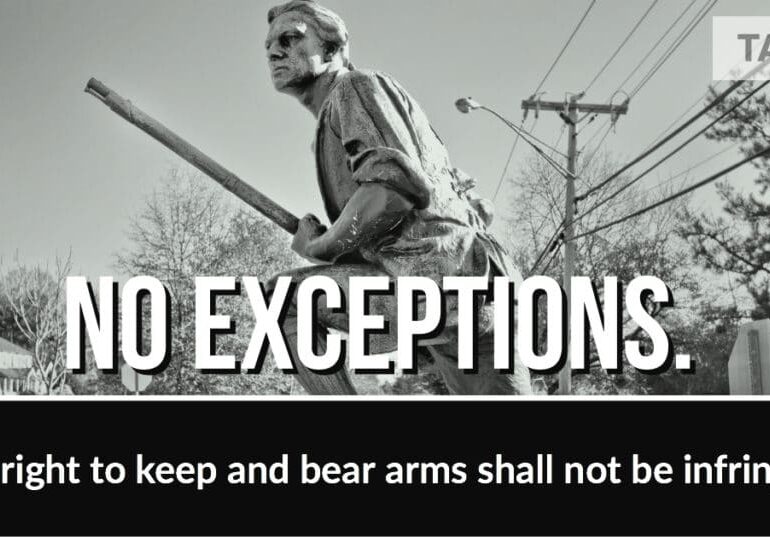
The 2nd Amendment isn’t your “Gun Permit.” You Are.
By: Michael Boldin
If you’re anything like me, your skin crawls anytime you hear someone say something like “the 2nd Amendment is the only gun permit I’ll ever need!”
While I appreciate the sentiment in opposing permission schemes – along with the fees and government approvals that go with them – the notion that any kind of amendment to the Constitution is a permission slip couldn’t be more wrong.
The 2nd Amendment isn’t your gun permit. You are.
More on that natural rights foundation in a moment. But first of all, there is no record of any founder ever referring to your right to keep and bear arms as a “2nd Amendment right.” During the debates over ratification of the bill of rights, no one ever expressed a view that the right to keep and bear arms wouldn’t exist if the states didn’t ratify the 2nd Amendment. And no one called the right to keep and bear arms “2nd Amendment rights,” either.
That’s because our rights are our rights – and the 2nd Amendment is merely a set of instructions to government to not restrict them in any way. Thus, the phrase “shall not be infringed,” which is pretty straightforward stuff.
Roger Sherman, for example, put it this way in a 1790 debate on the floor of the House of Representatives:
“It is the privilege of every citizen, and one of his most essential rights, to bear arms, and to resist every attack upon his liberty or property, by whomsoever made.”
This was more than a year before the 2nd Amendment was ratified. After ratification, Sherman never switched to referring to this essential right as a “2nd Amendment right,” and we shouldn’t either.
In his 1791 “Lectures on Law,” Supreme Court Justice James Wilson put it this way:
“The defence of one’s self, justly called the primary law of nature, is not, nor can it be abrogated by any regulation of municipal law.”
Wilson continued, taking it further:
“This principle of defence is not confined merely to the person; it extends to the liberty and the property of a man: it is not confined merely to his own person; it extends to the persons of all those, to whom he bears a peculiar relation—of his wife, of his parent, of his child, of his master, of his servant: nay, it extends to the person of every one, who is in danger; perhaps, to the liberty of every one, whose liberty is unjustly and forcibly attacked. It becomes humanity as well as justice.”
This gets to the heart of what I’m attempting to share with you today: The right to keep and bear arms is a natural right. It’s not liberty if it comes with a government permission slip. And this can’t be repeated often enough – The 2nd Amendment isn’t your gun permit. You are.
Here’s how Samuel Adams described it in 1772 in “The Rights of the Colonists.”
“Among the natural rights of the Colonists are these: First, a right to life; Secondly, to liberty; Thirdly, to property; together with the right to support and defend them in the best manner they can. These are evident branches of, rather than deductions from, the duty of self-preservation, commonly called the first law of nature.”
Ultimately, referring to your rights by amendment number gives the people in power the political cover they need to attack your rights. They, of course, hold the incorrect view that the constitution means what the Supreme Court tells us it means, and if the federal judges haven’t struck down the gun control measures of 1934, 1968 – and beyond – then your “2nd Amendment Rights,” are limited by “reasonable regulations.”
They’re wrong, of course, but they’ll continue to get away with it as long as the people continue to let them get away with it.
With attacks on our natural right to keep and bear arms – and the 2nd Amendment to the Constitution for these United States – ramping up year in and year out, we believe it’s absolutely essential to stand firm on foundational principles. Referring to your right to keep and bear arms as your right to keep and bear arms is a good starting point.
Mercy Otis Warren put it this way in 1788:
“Self defence is a primary law of nature, which no subsequent law of society can abolish”